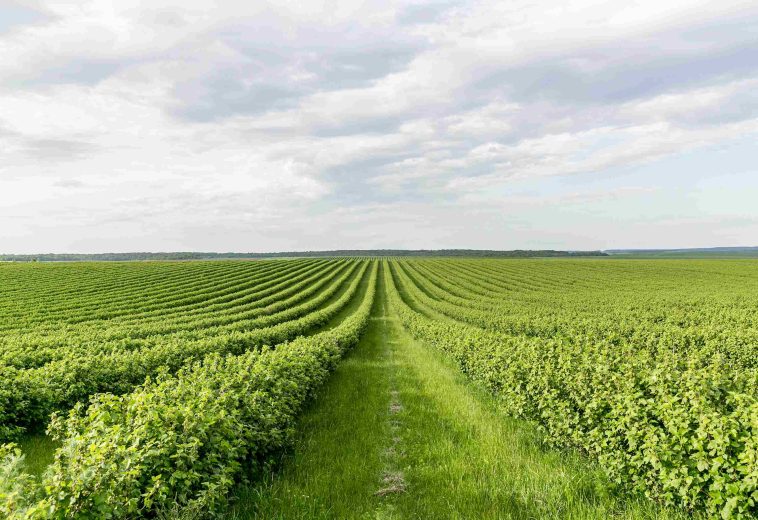If it is to achieve the vital goal of food security, Africa must preserve its biodiversity by developing its genomic capacity and infrastructure, according to the African BioGenome Project (Africa BP). This will not be easy because, despite food insecurity and the loss of its biodiversity, the continent is slow, reluctant according to some, to adopt genomics as the only way to help it solve its problems.
As the cradle of humanity, Africa has the greatest genetic diversity in the world, making it an invaluable resource for research on human health and disease. Despite this richness, African genomics is insignificant at the global level. Only about 20% of the world’s genomic data comes from the continent due to a lack of sequencing infrastructure, biobanks and funding.
The global genomics market is expected to grow from $42.6 billion in 2024 to $66.8 billion by 2029. But only 11 of the 54 African states have adopted GMO crops and only seven have a regulatory framework in place to regulate them. Africa is at the top of the list of African states that practice GMO crops. Thus, with 85% of its cultivated maize coming from GMOs, which allows this country to meet both its domestic consumption needs and to generate surpluses for export.
But South Africa is an exception. Overall, GMO crops are met with strong opposition and the majority of countries on the continent are unaware of the world of genomics. At the same time, Africa is at risk of losing almost all of its endangered species because no one has yet thought of sequencing the genomes of endangered animals and plants.
Sequencing 105,000 species
Africa has about 123,000 animal species and 60,000 known plant species. Over the past two decades, only the genes of 20 of these plants and 11 of these animals have been sequenced, most of this work having been done outside Africa. Founded in 2021, AfricaBP aims to fill this serious gap. She catalogues and studies the genomes of Africa’s rich biodiversity. It hopes to preserve it by advancing genomics and bioinformatics across the continent.
Through its knowledge exchange platform, called the Open Institute for Genomics and Bioinformatics (Open Institute), AfricaBP recently published a study that reports on its ambitions. Entitled “Unleashing Africa’s Bioeconomy and Strengthening Biodiversity Conservation through Genomics and Bioinformatics”, the study details why Africa needs to develop and adopt genomics if it is to preserve its biodiversity to achieve food security.
Biodiversity genomics offers economic opportunities to boost the African economy. The sequencing of 105,000 species is expected to generate a direct and indirect multiplier effect on the African economy.
Professor Anne Muigai, President of AfricaBP said: “It is through the power of genomics that Africa can reclaim its biological heritage, drive innovation and build a resilient and self-sufficient economy based on African knowledge, data and priorities.
An annual budget of $100 million
AfricaBP empowers African scientists through hands-on training while enabling them to leverage the power of public-private sector collaborations. AfricaBP is thus laying the foundations for a resilient and inclusive economy, anchored in African knowledge. To date, the organization has set an ambitious goal of sequencing 105,000 species, including plants, animals, fungi, protozoa and other eukaryotes.
To achieve this multi-million dollar goal, AfricaBP has assembled a team of more than 100 African scientists and more than 20 organizations across the continent. According to AfricaBP, the production of high-quality reference genomes for the 105 species identified would require a colossal investment of $850 million for sequencing, while an additional $20 million would be needed to store, transfer, download and process the data. Ultimately, AfricaBP would need an annual budget of $100 million.
AfricaBP focuses its efforts on species that are of economic, scientific and cultural importance to African communities, both in terms of sustainable food systems and biodiversity conservation. To cite just one example of the project’s profitability, an investment of $4 million in the South African Bovine Genomics Program could generate a return on investment in the range of $140 million over a 10-year period.
To date, however, African genomics initiatives remain confined to the inner circle of scientists, research institutes, universities, policymakers, government organizations and international partners. Few countries make this technology available to the general public for fear of controversy, as evidenced by the rejection of GMOs by a large number of Africans.\
While governments remain cautious, AfricaBP is committed to building the capacity of the local sequencing centres it is helping to create. The organization believes that its action is essential to reduce the continent’s dependence on foreign countries, create skilled jobs and accelerate innovation.
According to Agfundernews and the African BioGenome Project
As the cradle of humanity, Africa has the greatest genetic diversity in the world, making it an invaluable resource for research on human health and disease. Despite this richness, African genomics is insignificant at the global level. Only about 20% of the world’s genomic data comes from the continent due to a lack of sequencing infrastructure, biobanks and funding.



